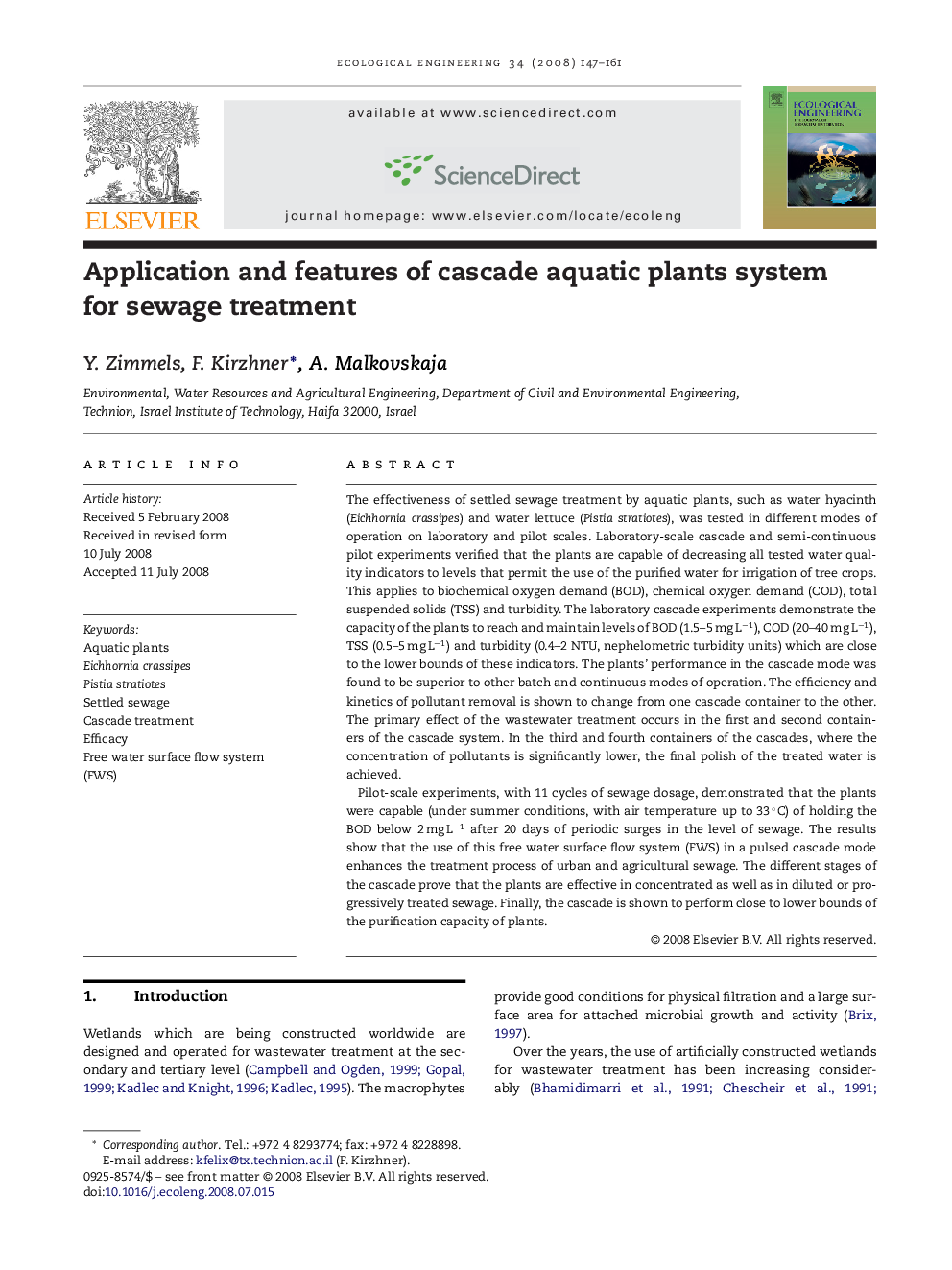| Article ID | Journal | Published Year | Pages | File Type |
|---|---|---|---|---|
| 4390610 | Ecological Engineering | 2008 | 15 Pages |
Abstract
Pilot-scale experiments, with 11 cycles of sewage dosage, demonstrated that the plants were capable (under summer conditions, with air temperature up to 33 °C) of holding the BOD below 2 mg Lâ1 after 20 days of periodic surges in the level of sewage. The results show that the use of this free water surface flow system (FWS) in a pulsed cascade mode enhances the treatment process of urban and agricultural sewage. The different stages of the cascade prove that the plants are effective in concentrated as well as in diluted or progressively treated sewage. Finally, the cascade is shown to perform close to lower bounds of the purification capacity of plants.
Related Topics
Life Sciences
Agricultural and Biological Sciences
Ecology, Evolution, Behavior and Systematics
Authors
Y. Zimmels, F. Kirzhner, A. Malkovskaja,
